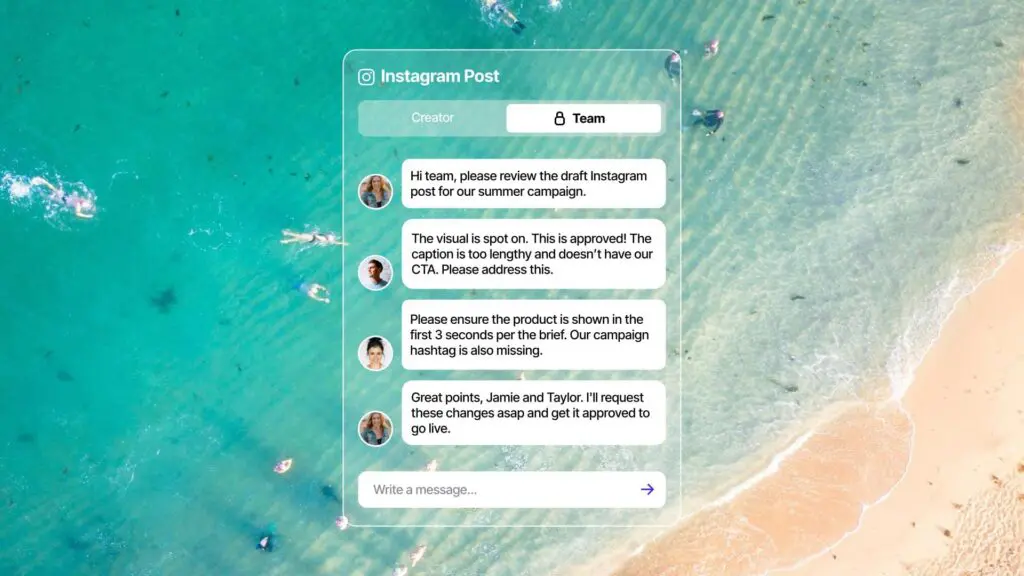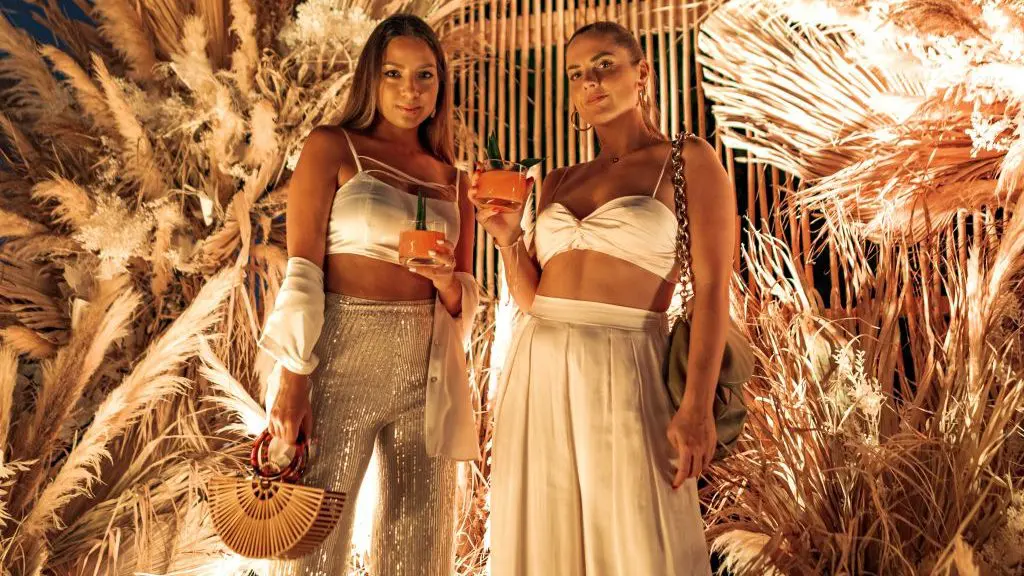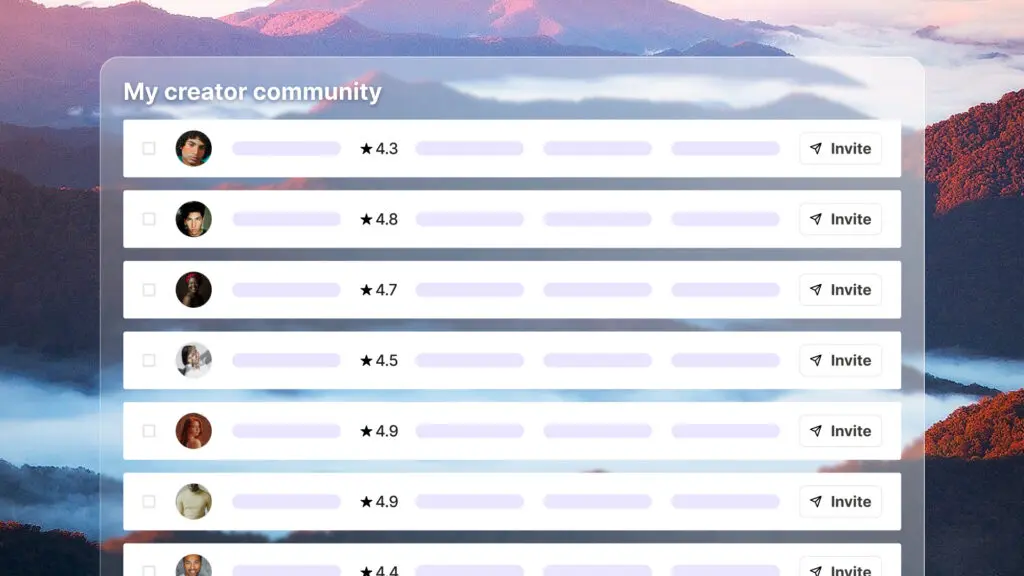

So, you’re hosting an event to build your brand’s reputation and engage your audience. With so many events being promoted online, how do you get your audience to pay attention? How do you get people to listen when every other newsletter, email, and ad is vying for people’s attention?
Welcome to the world of influencer marketing. Worth only $1.7 billion in 2016, influencer marketing has grown to be worth over $21 billion in 2023. This growth reflects the shift in consumer preferences for more authentic, user-generated content (UGC) and 50% of millennials say they now trust product recommendations from influencers more than traditional ads.
Influencer marketing can cause ripple effects that lead to double or even triple the reach of conventional ads. Depending on the influencers you engage with, you can often achieve a much greater ROI from your influencer marketing than from conventional marketing efforts.
So, without further ado, let’s dive right into what influencer marketing is and how to incorporate it into your social media strategy effectively to make your next event a roaring success.

Simply put, influencer marketing is using targeted influencers to promote your events, products, and/or services. We say targeted because not every influencer will help you accomplish your goals. When choosing your influencers, look out for people who are followed by your target audience and who share your brand’s values. (More on this later.)
When done right, influencer marketing can help you increase brand awareness and social media followers, and grow a loyal customer base.
Hosting events is a massive task. Not only do you need to find the right venue, speakers, and catering (for in-person events), but you also have to create buzz well in advance so that enough people show up. That’s a hefty to-do list.
Influencer marketing can lighten the load by scaling your event promotion. Influencers already have thriving communities of the people you want to attract, so by tapping into their network you’re massively expanding the reach of your brand.
Here are some of the benefits you can expect from influencer marketing:
Brands often struggle with reach and awareness if they don’t have a big following and/or have a low engagement rate. Influencers provide an opportunity to engage with a much larger and targeted audience in a more authentic way. They also have a higher engagement rate than most brands and have built trust with their audience, which can translate to more registrations and attendees for your event.
Influencer marketing reaches people in a very different way than traditional ads. Each influencer has their own unique style and voice. They can help you win the crowds by talking about your event before, during, and after the day in an authentic, unfiltered way. Make sure you give your influencers enough advance information and access to any backstage action you want shared online.
Click through rates for display ads hover at about 0.35%. However, the engagement rate for Instagram influencers is closer to 2% (or even higher for smaller influencers). Now, of course, we’re not comparing like for like here, but this goes to show that audiences respond very differently when they hear from an influencer they know and like, than when they see an ad from a brand they may never have heard of. Not to mention that influencers can plug your products or discounts in their content to help drive sales.

We mentioned earlier that not all influencers are a good fit for your brand. A massive following doesn’t equate success if their followers aren’t interested in what you have to offer. For example, there’s little point asking a beauty influencer to promote tyres.
So, when selecting your influencers, consider the following:
Does this sound like a heck of a lot of work? You can save yourself a whole lot of time and energy by using a platform like Vamp to find relevant, trusted influencers in your sector.
Before you start engaging with influencers, make sure you have your influencer marketing strategy locked down. This will help guide your efforts and establish the right metrics to ensure you’re on track with your event promotion.
If you haven’t done this already, here’s a quick guide on how to start:
This may be self-evident, but it’s a crucial step brands sometimes skip in their hurry to get ahead. Before investing any of your budget, it’s a good idea to do some social media listening to see what people are talking about and how they think about your brand. This can inform your goals and subsequent efforts.
Some more questions to consider:
There’s no point reaching out to influencers if you don’t know your budget and what you want to achieve. Before taking any further steps, be super clear on how much of your marketing budget you can allocate to influencer marketing. This will then drive the type and number of influencers you can actually engage with.
If you can’t afford to pay influencers, all may not be lost; micro-influencers will sometimes consider working with you in exchange for other benefits, such as free tickets or products.
Be very clear on what you expect from your influencers. Draft a marketing brief and don’t forget to get a professional contract written up if you’re paying them.
Once you have your goals and budget defined, it’s time to find your influencers.
You need to decide whether you want to engage micro-influencers, macro-influencers, celebrity influencers, or a mixture. For instance, while mega and celebrity influencers may have the largest following, they’ll cost you a pretty penny and usually have the lowest engagement rate. Micro-influencers, on the other hand, are more affordable and have a higher engagement rate but offer access to a significantly smaller audience.

In order to know how successful your influencer marketing campaign is, you need performance data. Again, depending on your goals, here are some things you could measure:
Influencer marketing is an essential tool in the arsenal of any marketer. However, for it to be effective you need to have a clear strategy. Defining your goals and choosing the right influencers are the first key steps in ensuring your event attracts a high number of attendees from your target audience.
Ready to take your influencer marketing to the next level? Reach out to our team at Vamp to make the most of influencer marketing for your events.



| Cookie | Duration | Description |
|---|---|---|
| __cf_bm | 30 minutes | This cookie, set by Cloudflare, is used to support Cloudflare Bot Management. |
| _abck | 1 year | This cookie is used to detect and defend when a client attempt to replay a cookie.This cookie manages the interaction with online bots and takes the appropriate actions. |
| _GRECAPTCHA | 5 months 27 days | This cookie is set by the Google recaptcha service to identify bots to protect the website against malicious spam attacks. |
| bm_sz | 4 hours | This cookie is set by the provider Akamai Bot Manager. This cookie is used to manage the interaction with the online bots. It also helps in fraud preventions |
| cookielawinfo-checkbox-advertisement | 1 year | Set by the GDPR Cookie Consent plugin, this cookie is used to record the user consent for the cookies in the "Advertisement" category . |
| cookielawinfo-checkbox-analytics | 11 months | This cookie is set by GDPR Cookie Consent plugin. The cookie is used to store the user consent for the cookies in the category "Analytics". |
| cookielawinfo-checkbox-functional | 11 months | The cookie is set by GDPR cookie consent to record the user consent for the cookies in the category "Functional". |
| cookielawinfo-checkbox-necessary | 11 months | This cookie is set by GDPR Cookie Consent plugin. The cookies is used to store the user consent for the cookies in the category "Necessary". |
| cookielawinfo-checkbox-others | 11 months | This cookie is set by GDPR Cookie Consent plugin. The cookie is used to store the user consent for the cookies in the category "Other. |
| cookielawinfo-checkbox-performance | 11 months | This cookie is set by GDPR Cookie Consent plugin. The cookie is used to store the user consent for the cookies in the category "Performance". |
| CookieLawInfoConsent | 1 year | Records the default button state of the corresponding category & the status of CCPA. It works only in coordination with the primary cookie. |
| csrftoken | past | This cookie is associated with Django web development platform for python. Used to help protect the website against Cross-Site Request Forgery attacks |
| elementor | never | This cookie is used by the website's WordPress theme. It allows the website owner to implement or change the website's content in real-time. |
| viewed_cookie_policy | 11 months | The cookie is set by the GDPR Cookie Consent plugin and is used to store whether or not user has consented to the use of cookies. It does not store any personal data. |
| Cookie | Duration | Description |
|---|---|---|
| __hssc | 30 minutes | HubSpot sets this cookie to keep track of sessions and to determine if HubSpot should increment the session number and timestamps in the __hstc cookie. |
| __hssrc | session | This cookie is set by Hubspot whenever it changes the session cookie. The __hssrc cookie set to 1 indicates that the user has restarted the browser, and if the cookie does not exist, it is assumed to be a new session. |
| __hstc | 5 months 27 days | This is the main cookie set by Hubspot, for tracking visitors. It contains the domain, initial timestamp (first visit), last timestamp (last visit), current timestamp (this visit), and session number (increments for each subsequent session). |
| _ga | 2 years | The _ga cookie, installed by Google Analytics, calculates visitor, session and campaign data and also keeps track of site usage for the site's analytics report. The cookie stores information anonymously and assigns a randomly generated number to recognize unique visitors. |
| _ga_56JWQ0019V | 2 years | This cookie is installed by Google Analytics. |
| _gat_UA-132076027-1 | 1 minute | A variation of the _gat cookie set by Google Analytics and Google Tag Manager to allow website owners to track visitor behaviour and measure site performance. The pattern element in the name contains the unique identity number of the account or website it relates to. |
| _gcl_au | 3 months | Provided by Google Tag Manager to experiment advertisement efficiency of websites using their services. |
| _gid | 1 day | Installed by Google Analytics, _gid cookie stores information on how visitors use a website, while also creating an analytics report of the website's performance. Some of the data that are collected include the number of visitors, their source, and the pages they visit anonymously. |
| bscookie | 1 year | LinkedIn sets this cookie to store performed actions on the website. |
| CONSENT | 2 years | YouTube sets this cookie via embedded youtube-videos and registers anonymous statistical data. |
| hubspotutk | 5 months 27 days | HubSpot sets this cookie to keep track of the visitors to the website. This cookie is passed to HubSpot on form submission and used when deduplicating contacts. |
| Cookie | Duration | Description |
|---|---|---|
| _fbp | 3 months | This cookie is set by Facebook to display advertisements when either on Facebook or on a digital platform powered by Facebook advertising, after visiting the website. |
| _pin_unauth | 1 year | This cookie is placed by Pinterest Tag when the user cannot be matched. It contains a unique UUID to group actions across pages. |
| AnalyticsSyncHistory | 1 month | No description |
| bcookie | 1 year | LinkedIn sets this cookie from LinkedIn share buttons and ad tags to recognize browser ID. |
| bscookie | 1 year | LinkedIn sets this cookie to store performed actions on the website. |
| fr | 3 months | Facebook sets this cookie to show relevant advertisements to users by tracking user behaviour across the web, on sites that have Facebook pixel or Facebook social plugin. |
| IDE | 1 year 24 days | Google DoubleClick IDE cookies are used to store information about how the user uses the website to present them with relevant ads and according to the user profile. |
| lang | session | LinkedIn sets this cookie to remember a user's language setting. |
| lidc | 1 day | LinkedIn sets the lidc cookie to facilitate data center selection. |
| MONITOR_WEB_ID | 3 months | The cookie is used by: TikTok The functionality is: to store if the user has seen embedded content. The purpose is: Marketing/Tracking |
| test_cookie | 15 minutes | The test_cookie is set by doubleclick.net and is used to determine if the user's browser supports cookies. |
| ttwid | 1 year | No description available. |
| UserMatchHistory | 1 month | LinkedIn sets this cookie for LinkedIn Ads ID syncing. |
| VISITOR_INFO1_LIVE | 5 months 27 days | A cookie set by YouTube to measure bandwidth that determines whether the user gets the new or old player interface. |
| YSC | session | YSC cookie is set by Youtube and is used to track the views of embedded videos on Youtube pages. |
| yt-remote-connected-devices | never | YouTube sets this cookie to store the video preferences of the user using embedded YouTube video. |
| yt-remote-device-id | never | YouTube sets this cookie to store the video preferences of the user using embedded YouTube video. |
| yt.innertube::nextId | never | This cookie, set by YouTube, registers a unique ID to store data on what videos from YouTube the user has seen. |
| yt.innertube::requests | never | This cookie, set by YouTube, registers a unique ID to store data on what videos from YouTube the user has seen. |
| Cookie | Duration | Description |
|---|---|---|
| li_gc | 5 months 27 days | No description |
| ln_or | 1 day | No description |
| msToken | 10 days | No description |
| wp-wpml_current_language | session | No description available. |